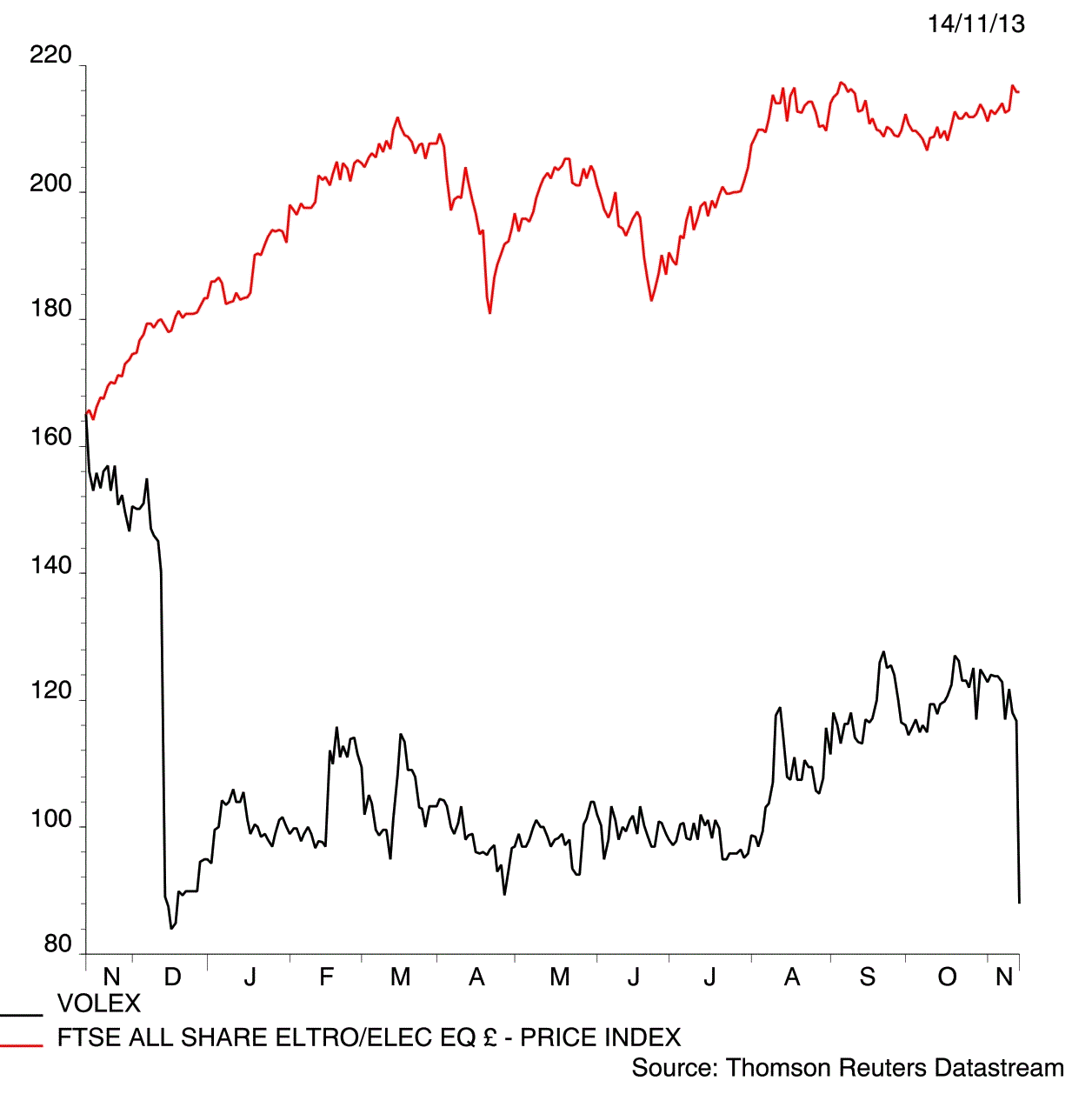
Today's dismal half-year results demonstrate how big a job Volex (VLX) faces to turn its fortunes around. Sales fell 21% to $196 million year-on-year while operating profits have collapsed, down 71% to $1.6 million.
Add in soaring net debt - it more than doubled to $41.4 million - and the London-based connectivity manufacturer has been forced to axe the half-year dividend to conserve cash. Needless to say, the market is not pleased, swiping £18 million off the company's market value as the shares crash 30.25p to 86.5p.
Tough market conditions and product launch delays take the blame with its biggest Power division particularly hammered. Sales here dropped 25% $128.3 million, and on wafer-thin 3.1% operating margins, Power profits were smashed 58% to $3.9 million. Even the Data side, which should be benefiting from international 4G switching, has not escaped as revenues fall 13%. At least Data's profits have survived, rising 7% to $5.7 million, avoiding the pricing pressures that have hit Power so hard.
Optimists might choose to view today's disaster as a new management kitchen sink job in the face of many challenges, flagged by Shares back in March. Sadly, those implied new orders have failed to materialise in large enough measure. Volex has reacted by transforming its top team, bringing in a new chief executive, chief financial officer and chairwoman this year, while TT Electronics (TTG) CEO Geraint Anderson joins as a non-exec today, bolstering a couple of previous non-execs over the past few months.
Yet given massive cuts to forecasts (finnCap has slashed its EPS estimate this year by two-thirds), limited visibility and long-haul road to recovery, it's difficult to see many reasons for investors to hang in there.
This might prove a bottom for the shares but there must also be hefty risk that trading does not improve sufficiently quickly to cap profit warnings in the immediate future. With most City number crunchers assuming no dividend at all this year, even the floor provided by yield has evaporated, leaving shareholders flying by the seat of their pants for the rest of this financial year (to end March), and maybe beyond.





